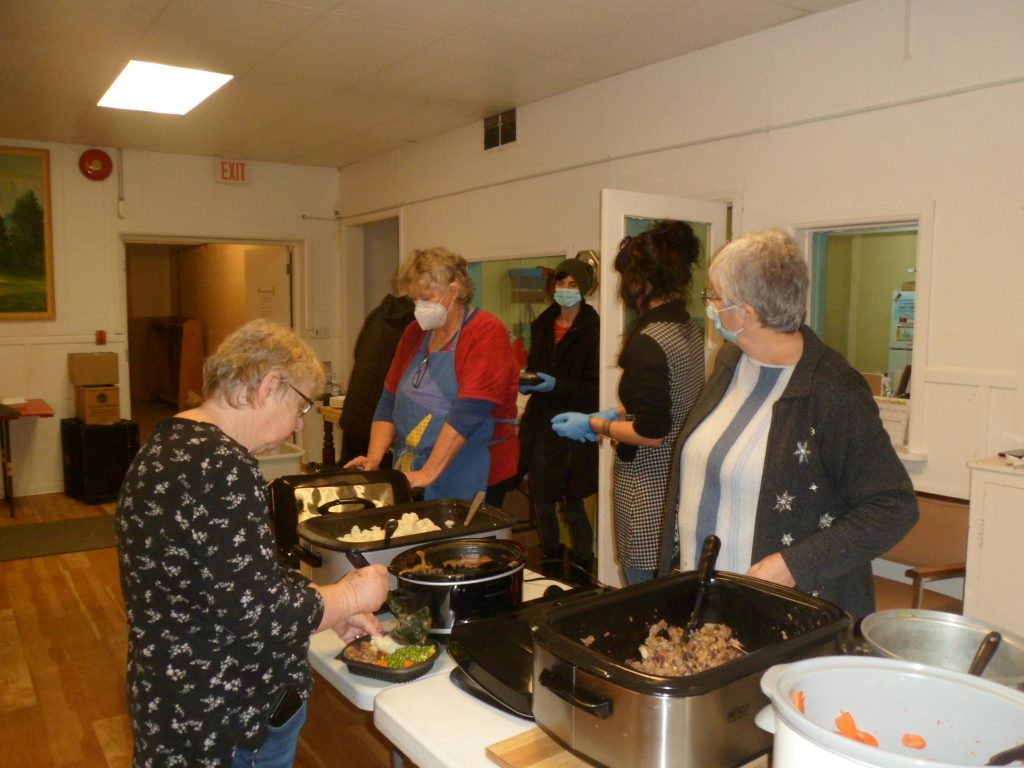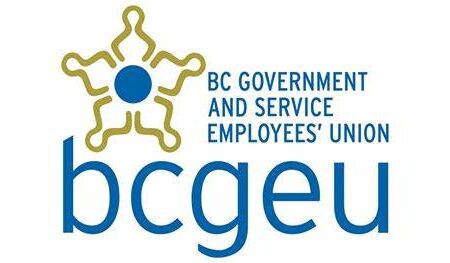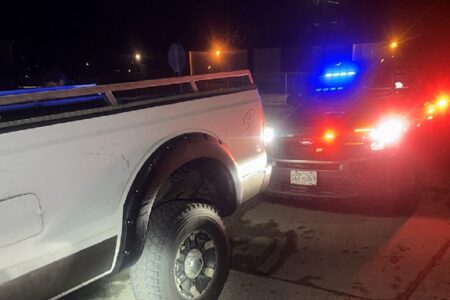It takes a whole church to raise a warming centre - A Living Here feature
It has been a rollercoaster year for weather in B.C. We ended 2021 with extreme cold warnings across the province, and temperatures well below seasonal averages. There was record-breaking rainfall and destructive flooding this fall. And we all know that it was scorching hot in southern BC this summer.
In the height of the heat, when a request came from the RCMP through Interior Health for a church in Trail, BC, to open an emergency cooling centre, the folks at Trail United Church stepped up. Within two hours of receiving the request, they had set up a temporary centre to support vulnerable citizens in the extreme heatwave, in the room where the church runs a food bank.
Fast Action in the Heat
Does that seem fast? As you will see, Trail United is a church that cares. Bill Van Beek is the treasurer and a trustee for Trail United Church.
“There was great community support. There were great volunteers,” says Bill, for whom serving is second nature.
Bill grew up in Vancouver, went to school out east, and was in the army for five years before being posted to Trail in 1979 to work with the military reserve unit as an advisor. He started working at Trail’s Teck Resources smelter (then called Cominco) and rooted down. Since retiring from Teck five years ago, Bill has worked hard volunteering on several community and economic development committees.
Marie Skinner, Marylynn Rakuson, and Bill Van Beek don’t let physical distancing stop them from doing their vital community work
Another church member, Marie Skinner, understands that the heat dome and increased heat are linked to climate change. She also knows how the summer’s heat affected the city’s most vulnerable citizens. Marie and Bill are on the church council together (Marie is the chairperson). Like Bill, Marie is a very active volunteer. Marie worried this summer during the heat dome about people in Trail who are housing insecure—meaning they either have accommodation that does not meet their basic needs or lack a home altogether.
“It was so hot. People were passing out from the heat, so we just said, we can do something about this. We got so much support. Lots of people came. There is such a need,” says Marie, one of many helping hands who put the cooling centre together.
The emergency cooling centre hosted over 30 people daily to socialize, eat and drink during the hottest month of the summer. The church filled the need, using community donations and funding from local organizations. It was indeed a community affair.
“There has never been such a sustained, drastic heatwave like this summer. I feel like we had to do something. We couldn’t just leave people out in that heat. I’m a person of action,” says Marie.
Helping Those Who Have Less
Climate change means people who have less, like people experiencing homelessness, will suffer more when extreme weather occurs.
Bill has noticed changes over the past few years, living in Trail.
“There are forest fires impacts: the ash fallout and the rest of it is something we didn’t experience until about the last five years. There were forest fires before that, but I can’t recall seeing them cause ash fallout.”
The church is very invested in serving the community. There are over 20 community groups that use the church facilities.
“We think serving the community is really important,” says Marie.
“There seemed to be very little governmental support in our area for the cooling centre.
Individuals were great, organizations were great, but what the regional district did, the municipality, was nothing we could see. For the heat dome response, I heard of other areas where the city of Vancouver stepped up; other places did. But it didn’t seem like there was anything that the local government did,” says Bill.
Bill sees many reasons people struggle to meet their housing needs, like the rising cost of living and soaring rental prices.
“I’m not sure of the last time apartments were constructed in our area on a commercial basis. A lot of apartments have turned into condos.”
Bill thinks there is another factor in Trail, where there is currently no affordable housing.
“There used to be the Groutage, a slum building, but people were out in the street two years ago when that got condemned. It wasn’t a good building, but at least they had a roof over their heads. There’s a lot of effort between the city and BC housing to try and put something in place here, but it’s taking a long, long, long, long time. I’m not saying there’s no action. But there needs to be more action to try and ameliorate the situation.”
In Canada, about 3.7 million people live below the poverty line, according to the 2019 Canada Income Survey. Statistics Canada determines people live below the poverty line if they cannot cover the local cost of necessities such as food, clothing, transportation and shelter.
Marie is actively working to change people’s attitudes about housing insecurity.
“Nobody plans to end up homeless and living on the street. It’s nobody’s dream. I think people make the best choices they can with the tools they have, including their life history, mental health, level of education. There is so much to it.”
Marie wrote a letter to the editor at the Trail Times hoping to shift people’s minds.
“One thing I dispute with people is that there are so many people imported into Trail. When I talk to street-entrenched people, which I make a point of, most of them are from the Trail area. They might be from Fruitvale or Rossland, but not many moved from the Yukon or Vancouver. It comes from that ‘not in my backyard’ attitude,” says Marie.
While the church happily temporarily filled this need for a cooling room, this is not a permanent solution. Marie and Bill believe there is an enormous need for a permanent shelter for people experiencing housing insecurity. They hope this will be set up by the City of Trail, Interior Health, or other local organizations.
Marie just attended a memorial for a local person who died of a fentanyl overdose. These local deaths are hitting her hard. Bill and Marie agree that if people have affordable housing, they stand a chance of solving the other problems in their lives.
“It’s all levels of government. As a society, government, we get together to have affordable housing,” says Bill. “Addiction, mental health, and poverty won’t be addressed until you have adequate housing for people so they can stabilize.”
Marie is exploring another possible solution: guaranteed basic income. As church council chair, she addressed the church on this idea.
“I gave a sermon on guaranteed basic income. It’s a difficult concept to make work. It’s got great merit. We have made some baby steps in that direction.”
What makes basic income different from other programs, such as income assistance or welfare, is that it has no strings attached. In the simplest terms, it’s a regular payment without conditions, sent from the government to families and individuals.
Marie and Bill are both curious about this option, but both say that this system would need to include support from community organizations.
“I think it would help a lot. It needs to be done in conjunction with affordable housing steps and mental health support. There are so many pieces that would come into that scenario. It would be a good step,” says Marie.
























Comments